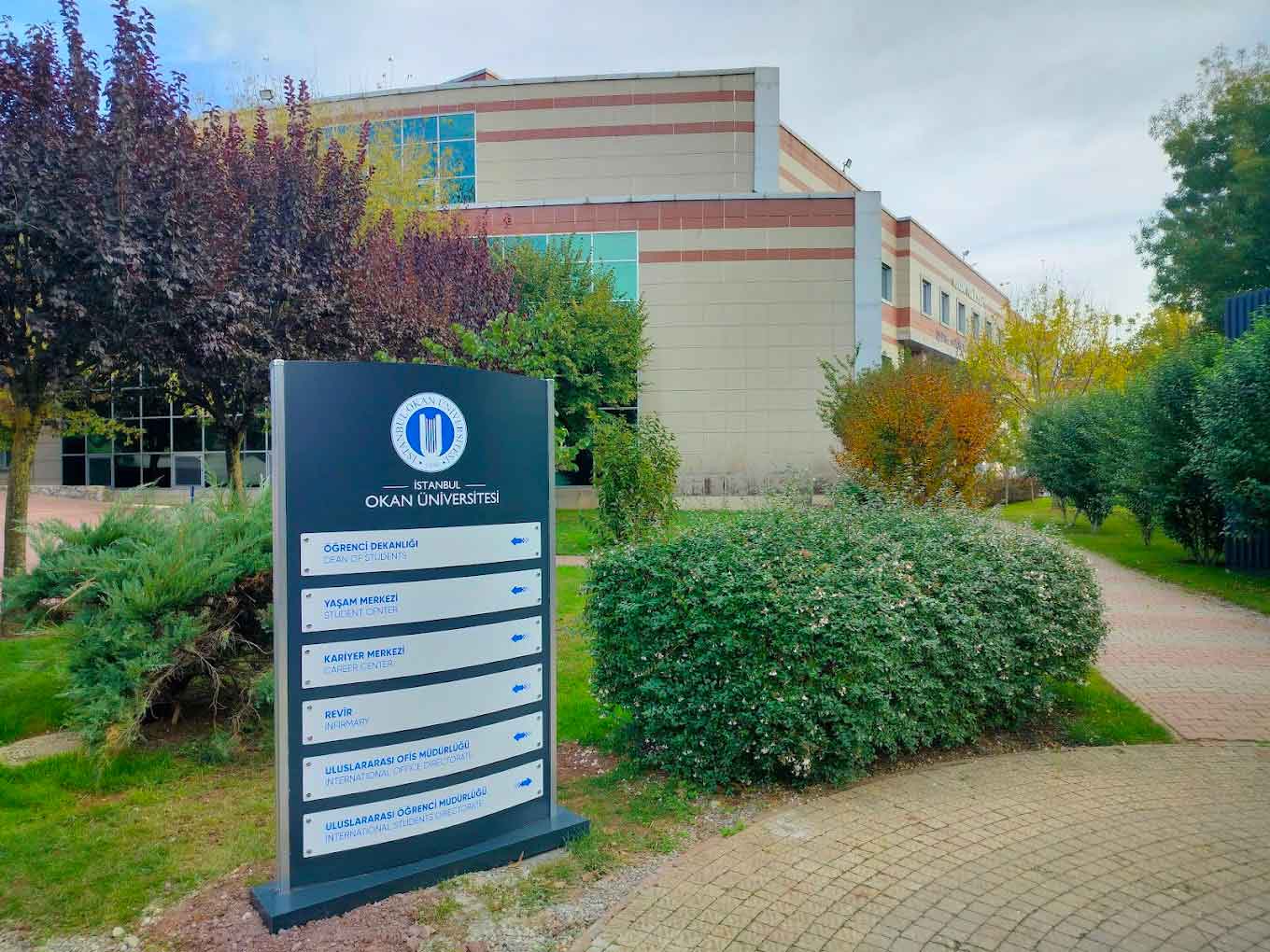
The ease of applying and being accepted to Turkish universities for master's degree in Turkey 2025 is one of the main reasons for the increasing demand for Turkey from students from all over the world.
This is in addition to the quality of education, the variety of master's programs, and the low cost. We will discuss everything related to studying for a master's degree in Turkey 2025 in our article.
Master's studies are the next stage after bachelor's studies. You can enroll in Turkish universities and study for a master's degree in one of three ways
The study experience in Turkey has many advantages, especially studying for a master’s degree. The most prominent of these advantages can be mentioned as the following:

Learn More : Free Turkish scholarships for all academic levels
Master's students face some challenges during their study period in Turkey, which can be summarized as follows:
1. The Turkish people are proud of the Turkish language. Some students may face difficulty interacting and integrating into Turkish society due to the difference between their mother tongue and the language of the country in which they study.
However, this disadvantage can be remedied by enrolling in a preparatory year to study the Turkish language and daily interactions in Turkish society.
2. Some students face difficulty covering all tuition fees and living expenses, especially if the university is in a major, expensive country like Ankara or Istanbul.
3. The duration of master's studies in some specializations varies from country to country, which may make it difficult to have your master's degree recognized.
This can be addressed by contacting the Ministry of Higher Education in the student's country and verifying the equivalency requirements.
You can also seek help from the New Horizons team and get free consultations to avoid these negatives.
Read more: Advantages of studying in Turkey
Master's degree tuition fees in Turkey start from $1,900 and go up to $25,000 at private universities, while at public universities they range from $300 to $600.
Learn More: Advantages of studying a master's degree in Türkiye
Master's degrees can be studied in English, and are more available in private universities, while there are limited ones in government universities.
Both public and private universities have unique features that distinguish them from each other
Students are accepted into public universities to study for a master's degree for the following reasons
Read more: Accredited Turkish private universities in Arab countries 2025
Despite the above-mentioned advantages, there are some disadvantages, including
The New Horizons team offers many tips to avoid these defects. You can contact us for free.
Master's degree in Turkey are divided into two categories
Master's with a thesis and Master's without a thesis
This type focuses on developing academic research skills.
A research paper is required for graduation and is more suitable for students wishing to pursue a doctorate.
This type focuses on the prescribed academic subjects and acquiring the required practical skills.
This stage ends with taking a test and preparing a project as a basic condition for graduation.
It is also more suitable for those who want to quickly enter the job market.
Find Out More: Thesis vs non- thesis : what is the difference?
1. Medical specializations in Turkey
2. Master's programs in engineering in Turkey
3. Applied Sciences Majors in Turkey
4. Master's Degrees in Management in Turkey

The minimum required for studying for a master's degree in Turkey is 65% in private universities, while for public universities the acceptance rate is higher than that, and passing postgraduate studies exams is required.
Find Out More: What is GPA in universities?
Yes, it is possible to study a master's degree in Turkey 2025 online at private universities in English and Turkish.
Yes, there are fully funded master's scholarships from the Turkish government and partial scholarships from private universities.
It is important to meet the requirements for a Master's scholarship in Turkey to secure admission. These requirements include:
Turkish universities, whether private or public, do not require a specific age for master's studies. However, age is a prerequisite for acceptance into the Turkish scholarship program, which requires applicants to be no older than 30.
In general, the requirements for studying for a master's degree at Turkish universities are flexible and within reach of most students. However, they vary between public and private universities.
Successful completion of the undergraduate program with a minimum GPA of 65%. Passing any postgraduate tests, such as the GMAT or GRE, is not required.
Required Documents for Studying for a Master's Degree in Turkey 2025 at Private Universities
Government universities in Turkey require high grades, passing graduate admission tests, and submitting documents such as a letter of recommendation and a letter of motivation, due to the high level of competition for admission.
Master's tuition fees in Turkey start from $1,900 and go up to $25,000 at private universities, while at public universities they range from $300 to $600.
Here is a table of master's tuition fees for 2025 at the best private Turkish universities:
Here are the basic steps for planning and studying for a master's degree in Turkey:
If you are concerned about the registration process, you can contact us via WhatsApp or fill out the application form. An educational advisor will contact you to provide you with free educational advice and university acceptance.
The New Horizons team offers a free application service for students, relieving you of the financial burden when starting your application process.
New Horizons advisors provide personalized guidance to help you choose the right major and university based on your academic and professional goals.
The team works to simplify the admissions process and prepare the required documents, ensuring complete applications and increasing your chances of acceptance.
The team monitors the steps to obtain a study visa and helps you prepare the required documents to facilitate the process.
The New Horizons team provides accommodation, transportation, and reception services upon arrival, ensuring a smooth transition and rapid settlement in your new environment.
Contact us now for more information about studying in Turkey.
In short, studying for a master's degree in Turkey is an ideal experience for anyone seeking an opportunity to develop, gain experience, and expand their success. They will receive quality education, training at state-of-the-art research centers, and internationally recognized certifications.
If you still have questions about studying for a master's degree at Turkish universities and the available scholarships, don't hesitate to contact us and receive free educational advice, which will help you navigate your way to study in Turkey.
The new 2025-2026 academic year begins in October of each year in Türkiye, with some universities starting earlier, at the end of September.
Istanbul Aydin University, Bahçeşehir University, and Nişantaşı University.
Banking and Finance, E-Business Management. Digital Marketing, Local Governments and Decentralization, Global Politics and International Relations, Human Resources Management, Marketing, Accounting and Auditing, Advertising and Public Communications, and Business Administration.
Registration for private universities begins in May and continues through October each year.
For public universities, registration begins in June and August, and reopens again in December.
The requirements for studying at private universities in Turkey include a GPA of 60% or higher for studies in administrative, health, and literary disciplines, and a GPA of 85% or higher for studies in medical disciplines such as human medicine, dentistry, and pharmacy. Private universities in Türkiye do not require any international or local exams for admission.
There are 95 International Baccalaureate schools in Turkey, offering curricula in various languages, including English, Turkish, and German.
After many years of working on registering thousands of students in Turkish universities, and answering an unlimited number of questions about studying in Turkey, these are the most important questions that concern students
The average salary of a cybersecurity employee in Turkey is around 62,000 TRY per month, and it can reach up to 104,000 TRY per month for experts with more than three years of experience.
The basic admission requirements for Acibadem University in 2025 are a high school diploma with a 90% average for Medicine and 60% for other majors, along with a transcript and a passport.
Ada Kent University is ranked 13th locally and 22,411th globally, according to the official 2025 Ad Scientific Index ranking.
Yes, you can get a 10% cash discount on the tuition fees for the Medicine program, reducing the cost to $19,125 instead of $25,000.
No, the requirements are easy. A high school diploma with a 60% average and a passport are sufficient, and you can apply without a language certificate.